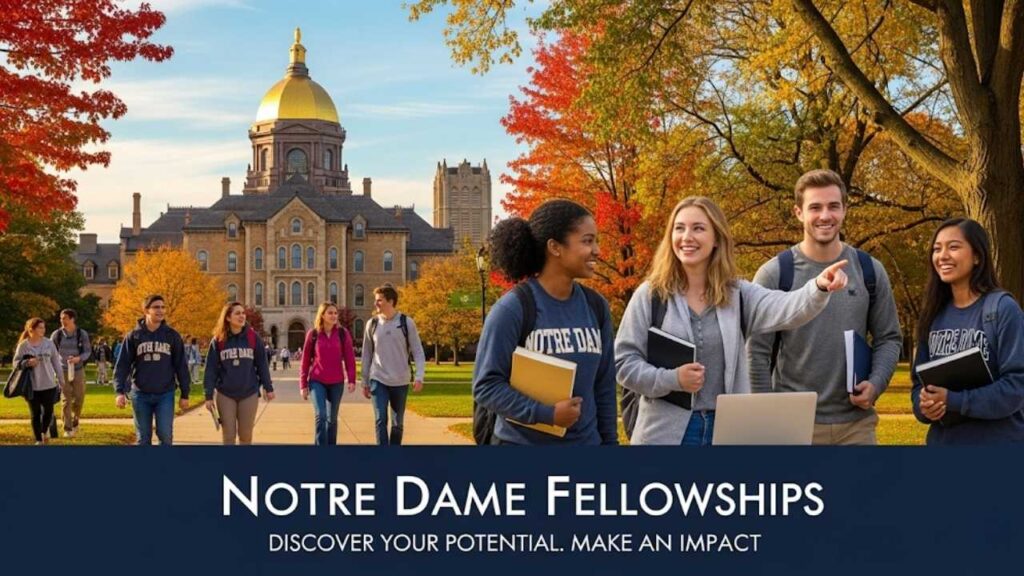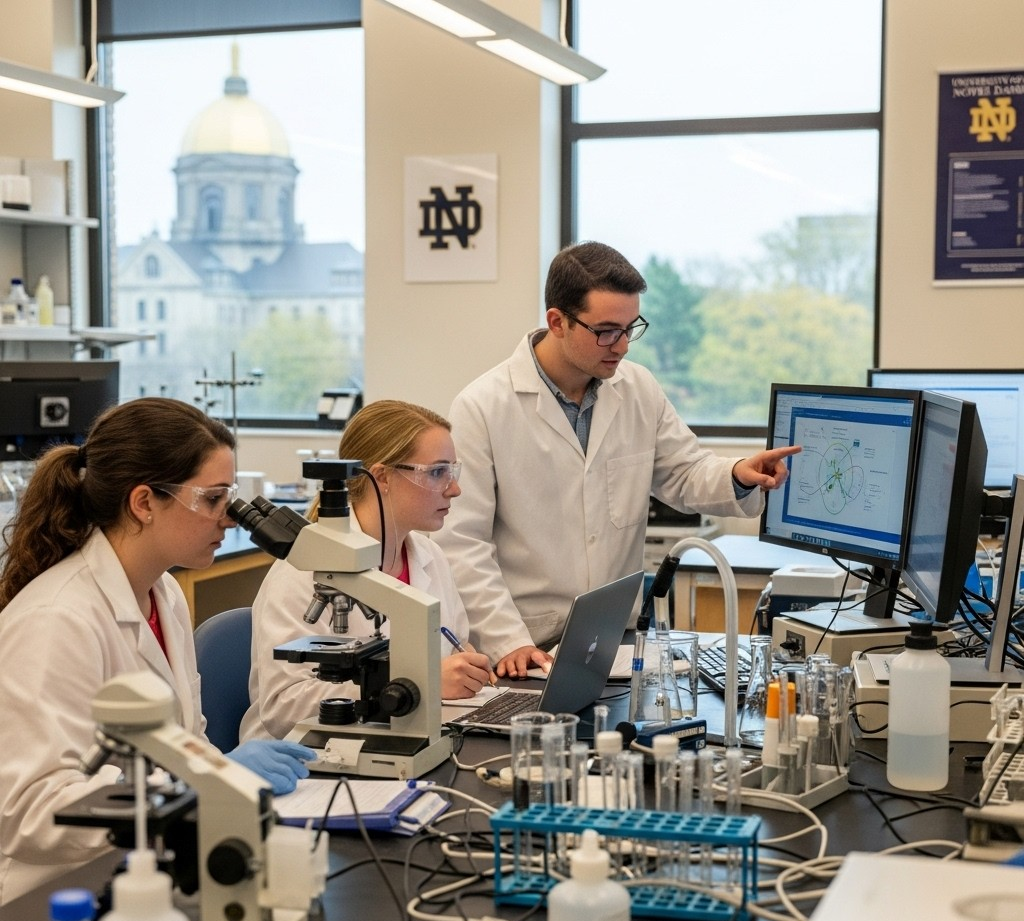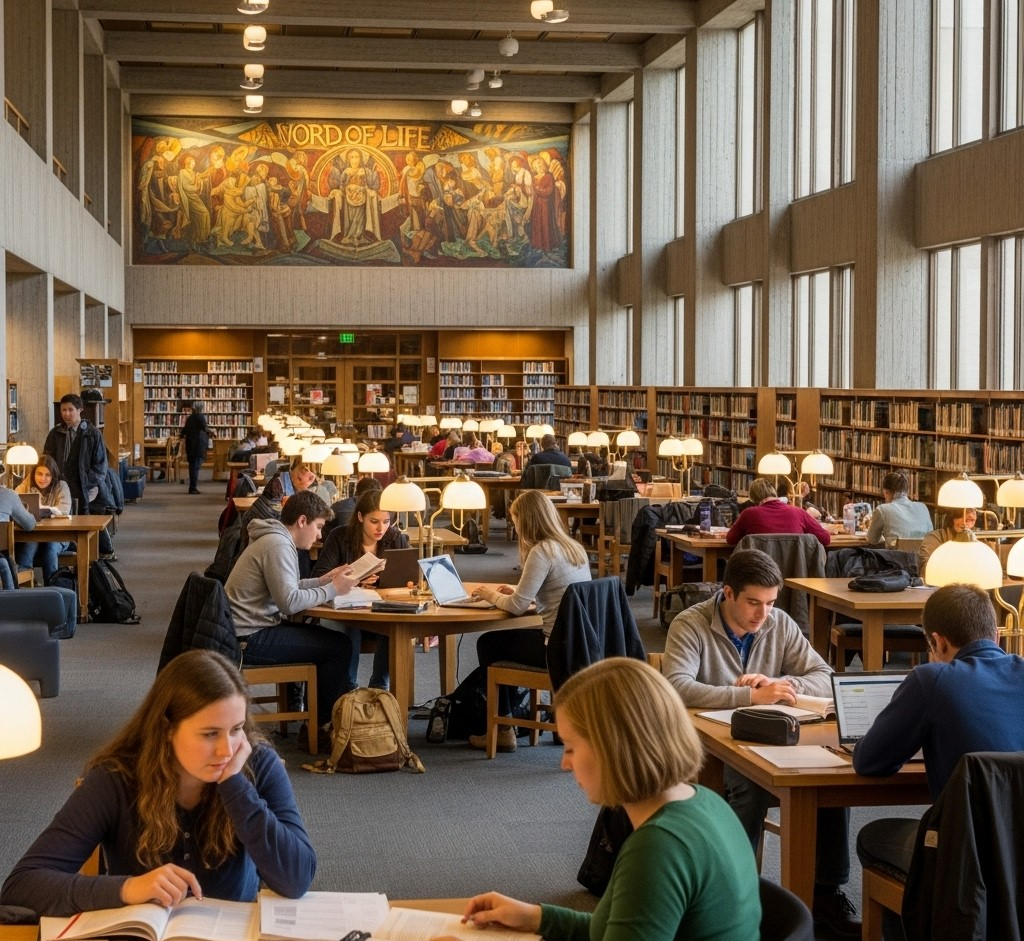Thinking about taking your academic journey to the next level? A Notre Dame fellowship for the Class of 2026 could be the key to unlocking your full potential. Securing a fellowship isn’t just about financial support; it’s about joining an elite community of scholars, gaining unparalleled research opportunities, and setting the stage for a truly impactful career. This guide will walk you through the specifics of the application process, from understanding eligibility to crafting a standout application. We’ll demystify the steps and provide actionable advice so you can navigate this competitive landscape with confidence. Let’s get started on turning your dream into a reality.

What is a Notre Dame Fellowship?
The University of Notre Dame is renowned for its commitment to both academic excellence and ethical inquiry. The university offers a wide array of fellowships that support students at various stages of their academic careers, from graduate students to postdoctoral researchers. These prestigious awards are designed to attract the most promising talent and provide them with the resources needed to conduct groundbreaking research and develop as leaders. A fellowship typically includes a stipend to cover living expenses, a tuition scholarship, and often a research allowance. This financial freedom allows you to focus entirely on your studies and research without the burden of student debt.
Beyond the financial benefits, being a fellow at Notre Dame means you’re integrated into a vibrant, intellectual community. You’ll have opportunities to collaborate with leading faculty, participate in exclusive seminars, and engage with a network of scholars who share your passion for creating positive change. From the Kellogg Institute for International Studies to the Institute for Ethics and the Common Good, these programs are at the heart of the university’s mission to be a force for good in the world.
Eligibility and Fellowship Types: Finding Your Fit
Navigating the fellowship landscape can feel overwhelming, but it becomes much simpler once you understand the different types of awards available and their specific eligibility criteria. Notre Dame’s fellowships are generally categorized by the level of study they support and their area of focus.
Postdoctoral and Faculty Fellowships
For those who have recently earned their Ph.D., Notre Dame offers several prestigious residential fellowships. For example, the Kellogg Institute for International Studies offers a postdoctoral visiting fellowship for scholars whose research focuses on global democracy and human development. Similarly, the Notre Dame Institute for Advanced Study (NDIAS) provides fellowships for scholars, artists, and practitioners working on themes that transcend disciplinary boundaries and address “ultimate questions.”
These fellowships are highly competitive and are open to applicants from all over the world. The Kellogg Institute fellowship, for instance, provides a substantial annual stipend, research funding, and medical insurance, allowing fellows to dedicate themselves fully to their scholarly work and prepare for the academic job market. Applicants for these fellowships must have earned their Ph.D. within a specified timeframe, often within the last three years, and have a strong scholarly record.
Graduate Student Fellowships
Notre Dame’s graduate students also have access to a wealth of funding opportunities. Many doctoral students in the Graduate School receive multi-year fellowships or assistantships that provide a stipend and full tuition scholarships. These fellowships are a core component of Notre Dame’s commitment to supporting its Ph.D. students and are often automatically awarded to accepted applicants based on nominations from their departments. According to the university’s Graduate School, almost all doctoral students receive full tuition scholarships, with most also receiving stipends that vary by discipline [ University of Notre Dame Graduate School.
A great example is the Wilsey Distinguished Graduate Fellowship, which is awarded to Ph.D. students demonstrating exceptional potential for scholarly impact. These fellowships often come with additional benefits like a research account and release from teaching assistant duties, giving students more time to focus on their dissertation research. Another notable opportunity is the **Rome Graduate Research Fellowship**, which supports advanced Ph.D. students in the humanities, social sciences, and engineering as they conduct dissertation research in Rome, Italy [Notre Dame Rome News].

The Application Process for a Notre Dame Fellowship
Applying for a competitive fellowship can feel like a full-time job, but breaking it down into manageable steps makes all the difference. While specific requirements can vary, most Notre Dame fellowships for the Class of 2026 will follow a similar application process. Pay close attention to these key components to ensure your application stands out.
1. Research and Timeline
The first and most crucial step is to research the specific fellowship you’re targeting. Each fellowship has a unique mission and set of requirements. Deadlines are non-negotiable, so mark your calendar as soon as possible. Many fellowships for the 2026-27 academic year have fall deadlines in 2025. For example, the Kellogg Institute’s postdoctoral fellowship deadline is often in early October [WEduShare]. Begin your preparation at least six months in advance to give yourself ample time to gather materials, write your essays, and secure letters of recommendation.
2. Crafting a Compelling Proposal
Your research proposal is the heart of your application. It’s your chance to demonstrate your expertise and vision. A strong proposal should:
- Clearly define your research question: What problem are you trying to solve?
- Explain your methodology: How will you conduct your research? Be specific.
- Highlight its significance: Why does this research matter? How does it align with the fellowship’s mission?
- Show feasibility: Is your project realistic to complete within the fellowship’s timeframe?
3. Gathering Your Materials
Most applications will require a standard set of documents:
- Curriculum Vitae (CV):This should be more than just a list of your accomplishments. Tailor it to highlight experiences relevant to the fellowship.
- Cover Letter/Statement of Purpose:This is your personal narrative. Use it to tell a story about your academic journey, why you are the ideal candidate, and how the fellowship will help you achieve your goals.
- Letters of Recommendation: Choose recommenders who know you well and can speak to your strengths and potential. Give them plenty of lead time (at least a month) and provide them with all the necessary materials, including your CV, proposal, and a clear list of what you need them to highlight.
- Writing Sample:This is your chance to showcase your writing skills and scholarly voice. Choose a piece that is well-researched, well-argued, and relevant to the fellowship’s focus.

Beyond the Application: What Happens Next?
Once you’ve submitted your application, the waiting game begins. The selection process is meticulous and competitive. Committees, often comprised of faculty experts in the relevant field, will review applications based on a number of criteria, including your scholarly record, the originality and significance of your project, and your potential for success. The process can take several weeks or even months. If you are selected, you will be notified and given a specific timeframe to accept the offer.
The journey to a Notre Dame fellowship is a marathon, not a sprint. It requires dedication, meticulous planning, and a deep belief in the value of your work. But the payoff—the chance to immerse yourself in research, join a world-class community, and build a foundation for a lifetime of intellectual inquiry—is immeasurable. The application process itself is a valuable learning experience, pushing you to articulate your goals and solidify your professional identity. So, take a deep breath, start your research, and get ready to tell your story. Your future is waiting.
Andrew W. Mellon Postdoctoral Curatorial Fellowship at The Met (2026-2028)
Ignite Your Career: A Complete Guide to the UL FSRI Fellowships Spring 2026
FAQs
Q1: Do I need to be a U.S. citizen to apply for a Notre Dame fellowship?
A: No, many Notre Dame fellowships, especially at the graduate and postdoctoral levels, are open to international applicants. It is crucial to check the specific eligibility criteria for each fellowship, as some may have country-specific requirements or visa sponsorship details. For instance, the Kellogg Institute welcomes applicants from any country [Scholarships.af].
Q2: What are the typical application deadlines?
A: Deadlines vary widely by fellowship. Many of the most competitive ones have deadlines in the fall (September-November) for the following academic year. For example, the Kellogg Postdoctoral Fellowship for 2026-27 has an early October 2025 deadline. Always check the official website of the specific fellowship for the most accurate and up-to-date information.
Q3: What is the stipend amount for a Notre Dame fellowship?
A: Stipend amounts vary significantly depending on the program, level of study, and discipline. For the 2025-26 academic year, the standard stipend for a doctoral student in the humanities and social sciences is around $38,000, while engineering students receive about $41,400 [ University of Notre Dame Graduate School]. Postdoctoral fellowships often offer a higher stipend to reflect the advanced nature of the research.
Q4: Can I apply for multiple fellowships at once?
A: Yes, it’s highly encouraged to apply for any and all fellowships for which you are eligible. Just be sure to tailor each application specifically to the requirements and mission of that particular fellowship. A generic application is unlikely to be successful.






